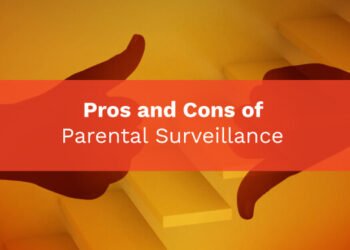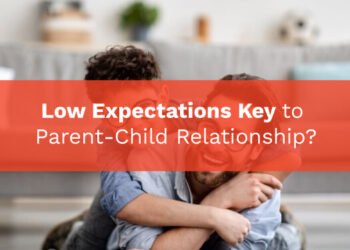The online world is adventurous. At present, the virtual world has become more dear to us than the real world. We wake up to the device and sleep with it. The net has made the world a chirpy home with the constant exchange of messages between humans. But how safe is the web concerning age groups? How secure is it for the ones who are online 24 hours? Let’s talk about online safety tips.
The World Wide Web has content that can keep up with people of different generations. They opt for what they want, and the net is ready with an answer. It is not that kids are stupid, and adults can tackle all the mishaps on the web. The only thing that affects is the level of awareness.
There is no proper metric to determine the safety regarding the act of staying online on the web. But the vulnerability shifts from one age group to another. The process includes how pessimistically impactful it is on kids after spending much time on the World Wide Web.
Have you ever wondered what kids do online? Kids are innocent, and they lack developed cognition or critical thinking that may lead them to perform harmful activities on the electronic highway. So they can fall under the trap sometimes. You, being a parent, should be careful about it.
To some kids, it can be tedious to stay online. Kids spend time playing games, watching movies, or getting involved in chats with peers. The problems arise when kids are ignorant. Another group of people on the net is there to misuse information. Kids staying online and online exploitation go hand in hand.
Why Are Age-Specific Online Safety Tips Important?
It is exciting for kids of different age groups to learn new things. Their minds and thinking enhance, and they take each step towards technology learning. The process of learning is good. So it is essential to teach your children online safety tips.
Children are vulnerable to the wide range of content exposed on the net. You can start by listing sites and materials to be shown to kids. They may get confused and take unnecessary steps out of ignorance. The step-like these must be taken keeping in mind the age of the child.
Similarly, with rapid development, children seek newer things. You cannot hide out everything. The trick is exposing the internet step by step and limiting interactions. Each interaction online should encompass the precautions necessary for children. The precautions act as a shield against the negative effect of the information superhighway. These precautions are the safety tips provided by you to your children.
Safety tips empower children and make them independent. They become smarter with every action on the net. Your responsibility as a caring parent reaches fulfillment by age-specific online tips. Teach them these skills, and it will be for the best.
You have to make sure to tell a six-year-old about the net in a different way than you tell a sixteen-year-old. You can be a camouflaging parent to keep track of them, helping children adjust to age and providing them with correct online tips at the perfect time.

Here are some ideas as to what your child thinks at a certain age and how you can counsel and teach them to fight in the world of the web:
Two To Four Years Old
At the age of two to four, cognition develops in a child. They can know what object is present in front of their eyes. A two-year-old feels and expresses but is not aware of what is real and what is made by man. They learn from real life more than what they watch on tv. For three-year-olds, they use words and sentences as expressions of feelings. At four years, children are curious and ask many questions. They begin copying anything they hear. You need to keep an eye on what they do online.
What Do They Do?
- Kids till four years of age do not think critically. They do not type keywords to get a result but may press with fingers and reach content.
- Kids from two to four years of age are scared of visuals that look scary and cannot know which is real and which is not.
- You may play rhymes or baby songs for them. Cartoons or baby-friendly songs are appropriate for such children.
- Sometimes they click from one hyperlink to another, which can lead to inappropriate content.
- They will want anything colorful and bright. Kids do not care about the working mechanism of a device with the camera.
Some Online Safety Tips For Kids From Two To Four Years:
- Make sure you are with your child when they access a cell phone or personal computer. You can filter content for them and show whatever is necessary.
- Be sure they do not watch violent content and do not imitate punching or kicking as observed from the media. Ghostly or scary materials need avoiding.
- They are developing all five senses so, be aware they do not listen to scary or music that increases their heartbeats.
- You can teach your children about general computer skills like the buttons and make them screen-friendly about touch screens.
Five To Seven Years Old
Kids from the age of five to seven years can read and write. Five-year-olds ask a lot of questions concerning where and why. Six years old are strengthening their focus and attention. They still cannot figure out what is real and what is imaginary. Seven years old can read stories and jokes. Their reasoning and thinking are also enhanced. But how can being online impact them?
What Do They Do?
- Kids from five to seven years of age can handle devices on their own. They know which button is play and pause and can access media alone.
- They are familiar with the keyboard, mouse-pad, and touch screen and play games or watch videos by themselves.
- For online interaction, they are not ready yet and cannot differentiate completely between what is harmful and what is not.
- Real or unreal images can affect them. They can get scared of ghostly content and videos.
- They may be exposed to unwanted sites accidentally. Some peer groups might tell them about unnecessary websites.
- They do not know the importance of privacy. Children do not care about things like the camera accession by some of the applications or sites.
- Children are addressable by online information seekers and end up filling forms, surveys. These data are of great value to the seeker but, your child is unaware of it.
Some Online Safety Tips For Children Between Age Group 5-7:
- You can start looking for child-friendly search engines that only broadcast content suitable for children.
- Make sure you limit the time for usage of devices. It is not an age for them to have their gadgets so you can set time.
- Monitor the content they search on a screen. You can do this by being present when kids access different sites.
- Ask them their favourite sites when you are with them. Bookmark the sites so that they look at only the sites and do not jump to other links.
- Talk to them about privacy. Let children know how important it is and how people can seek extra information about their family, locality of living, credentials.
- Ask them not to reveal confidential information like Name, Address, family information if a stranger encounters online.
- Ask them to report to you if something unfavourable happens online. Teach kids how to block people online.
- You can personally check messages, chats, emails, media content on kids’ devices if they use any. You can block all these online interactions until they mature.
Eight To Ten-Year-Olds
After eight, children begin socializing and hanging out with friends. They want to be like adults and play in groups. Kids develop skills like cognition, independence. They can handle peer pressure and do not wish to be alone. They think critically and become emotionally sensitive regarding matters of others. They become more responsible and can handle devices on their own.
What Do They Do?
- They develop a sense of self and wish to be independent and interact with peers. Also, they get involved in tasks that require access to the internet more.
- They are online and play games, interact and surf different sites. It is the beginning of the use of the internet alone, and they thoroughly enjoy it very much.
- Using emails, chatting with friends, accessing different features on social media will engross them. But this is not yet the age for online independence.
- They still lack the critical skills to cope with online disasters and should not be left alone.
- Violence, ghostly content, and irrelevant visuals are still dangerous to their innocent minds.
- Peers or online misusers can try accessing extra information about your child that includes family, locality, and salient credentials.
- Online predators can notice your kid if exact information reaches them. Staying online for extended periods is not beneficial.
- Peer pressure can lead them to perform stuff acceptable in a friend circle to act cool or become socially bearable.
- They may click on a link and reach to another.
Some Online Safety Tips For Children Between Age Group 8-10:
- Install parental control in your kid’s device so you can get updates about their online activities.
- Change the settings of the browser used in your kid’s device or use kid-friendly browsers.
- Ask your kids to report to you when extra information submission is necessary online.
- Be their friend and ask them to update you about activities they are involved in with friends and online.
- Discuss with an Internet Service Provider to limit email accounts up to one. The whole family can have the same email id.
- Keep laptops or monitors in an open area where you can notice the activities of your children online.
- Set a time limit to use the internet. Let them gather reasons to use the internet and make sure they use sites only approved by you.
Eleven To Thirteen Years Old
Kids of age eleven or twelve can imagine and understand an abstract concept like different shades of green. They develop logic and reasoning and can solve problems using strategy and numerous ideas. You kids play logical games like tic tac toe. Also, they start thinking like adults.
As they start getting conscious about their image socially, egocentrism begins. They learn to multitask and can do anything to feel the best among all. In such a stage, you should keep track of what they do online. They are busy on the internet and interact with friends.
What Do They Do?
- Children at this age get swayed away by what elders do on social media and try to imitate them. They wish to grow up immediately and try things adults do. This wanting includes the independence of adults online. They sometimes copy friends and grown-ups.
- The need for the digital path via online platforms increases at this age. Your child needs information for educational purposes, interaction with peers via chat, social media. Online gaming also trends, and the latest songs, movies, and children follow celebrities.
- They enjoy the company of friends via instant messaging, chatting, and messaging via text.
- By this age, they feel that they can confidently handle online platforms and technology. In reality, they still have not developed firm critical thinking. You must have a knowledge and understanding of this.
- In adolescence with psychological and emotional development, the physical changes can lead to curiosities regarding sexuality. Boys may get into seeking porn content. Girls can blindly copy social media influencers or adult celebrities.
- Children are interested in seeking love relationships. Opting for romantic relations could make them seek attention from some adults and interact with them online.
- Online predators eye on younger children and can talk to them with ill intentions.
- There can be misusers of the online platforms who lure children into getting information regarding houses, locality, and even credentials. Your children may end up filling forms or surveys and fall under the trap of a marketer.
- There can be chances of blackmailing or bullying online.
Some Safety Tips For Online Users Of Age 11-13 Years:
- Install parental control in your child’s computer and all other devices at home. With the help of parental control, you can track what your kid is doing online. Some parental control allows location tracking. You can know where your child is.
- Communication with your kids is a must. Get updates on who they interact with and hang out with and get to know who they meet. Make sure you know all the close friends they socialize and interconnect.
- Inform your child about the meeting of strangers in real life that appears as online friends. Help them distinguish between what seems actual and what could be dangerous. Ask them not to meet strangers without your permission.
- Give a lot of time to your kids so that they share passwords of email or another personal account. This way, you can know what actions they are taking online.
- Explain to them that strangers online can try to access information about family and location of living. In reality, they are marketing traps. Teach them ways to tackle such encounters online.
- Teach your children about moral values and ethics online. Tell them it is unethical to threaten, tease or bully someone. Ask them to report to you if they face bullying, teasing, or receive threatening.
- Set a time to allow them to use the world wide web. You can install time tracking apps or do it personally such that they do not waste much time online.
- Do not allow them to access chat rooms. Make sure they follow age restrictions guidelines while making social media accounts like that on Facebook. Facebook requires 13 years to hold an online id. Make sure they use Youtube Kids.
- Tell them to ask for your permission before posting address or personal information online that encompasses pictures or selfies.
- Make your children aware of online predators that might manipulate them emotionally. Tell them to inform you immediately if someone asks for sexual content or pictures.
Fourteen To Eighteen Years Old
This term used for the age group of children between 14-18 is adolescents. Yes, my dear! A crucial time for you to look after your kids and equally difficult for them to cope up. They are on board with emotions, and self-esteem reaches the peak. It is the time that they get influenced by the electronic highway, peers, movies, series, and television. They take up everything visible and learned. It is time for you as a parent to be more careful about what your kids are doing online.
What Do They Do?
- At this age, children are on the bridge between adulthood and adolescence. They want independence and start seeing themselves with the feeling of me and mine. They develop a sense of self and prioritize self-esteem.
- Kids may end up in adult sites out of curiosity or from the knowledge provided by peers. Adult sites include porn sites or sites that depict offensive content as dark humor.
- Concerning social media, they can be victims of sexual comments. Pictures sexualizing women and adults can seem normal to them.
- They enjoy online games, movies, and different chat rooms. These places can lead them to meet different types of people online. They follow the latest trends as fashion and blindly copy some celebrities. They may even find a favorite character and try to act like them. Some songs and visuals can be misleading.
- Strangers can ask your child to meet offline. Online interactors can be predators.
- Online marketers ask children to fill up surveys and forms. These forms include prime data that the misusers use for illegal purposes.
- They seek for partners to share their stuff.
- They may reach gambling sites and can enter credit card numbers at other unnecessary adult websites.
- Children can be victims of online bullying and extortion.
Some Online Safety Tips For Children Of 14-18 Years
- Use parental control applications to know what your kids are doing online. You can install parental control on their personal computers, tabs, and all other devices used in the house.
- Communicate about their daily life so that you know about their day at school and their life offline.
- Set internet rules inside the house. You can even contact ISPs to filter websites. Make sure your kids access only the sites that you put on the list.
- Get to know the people with whom your kid hangs out. Make sure you know who they talk to online. Ask them to make a list of people they interact with online. Get to know about each of them. Also, set a time limit for using the web.
- Teach them the value of privacy. Let kids know that their personal information is not shareable online. If someone tries to get too close, ask them to report to you.
- Let them know about spam in the junk section of the email. Designing g of fake emails is to lure and take away essential information. Tell them about the email filter option.
- If someone asks your kid to meet offline, ask them not to go. You can accompany them if it seems secure. Do an online check-up before allowing them to go.
- Teach them about the ethical rules online. Explain that it is wrong to spread false information about others, bully or tease someone.
- Ask them to seek your guidance if they need to access online products and involve in online transactions about finance.
- Teach your children about infringement when they copy some text or files with images. Inform them about copyright laws.
- Keep an eye on their media content on cell phones and browsers routinely. You can get information about their actions online.
Conclusion
These online safety tips will surely help you and your child. Remember that even an adolescent does not have fully developed reasoning ability. They still lack critical thinking skills. Most of the time, they are emotionally driven, and that can create problems.
You as a parent can be their friend as most of the information about your kid is gettable from them only. So, interact with your kid as much as possible. Keep them safe and become responsible and joyful parents. Happy Parenting!
















